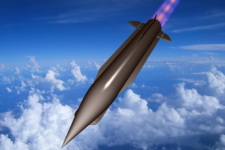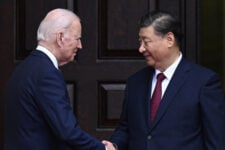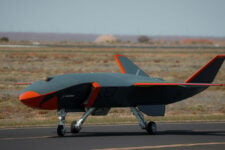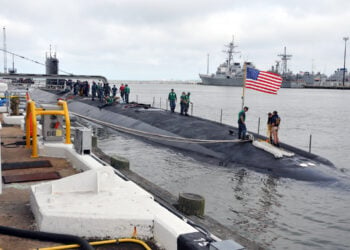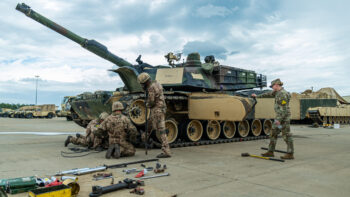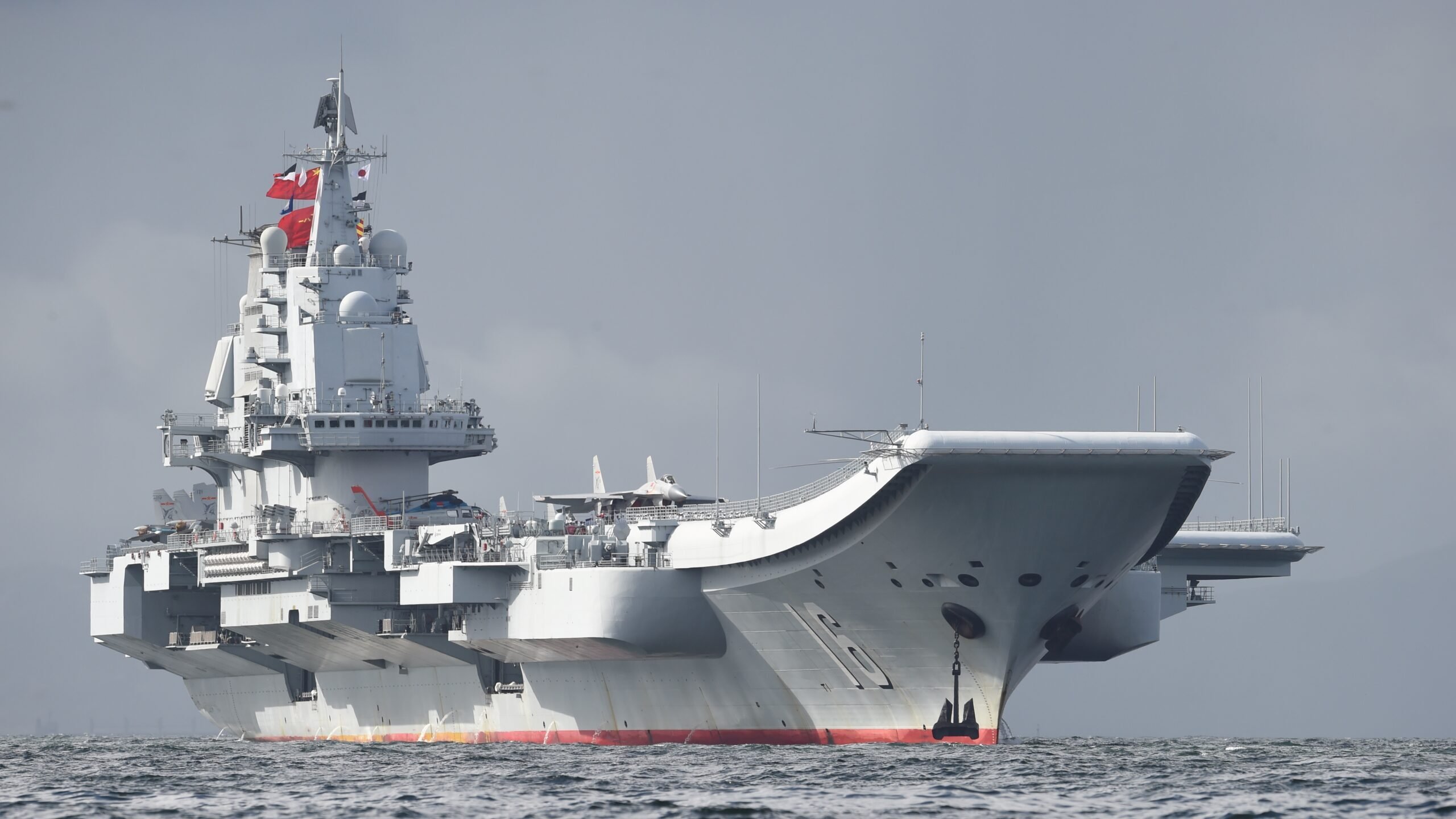
China’s sole aircraft carrier, the Liaoning, arrives in Hong Kong waters on July 7, 2017, less than a week after a high-profile visit by president Xi Jinping. (Anthony Wallace/AFP via Getty Images)
WASHINGTON — The US Navy needs to be prepared to react to a Chinese invasion of Taiwan at any time, even as soon as this year or next, the service’s top officer said today.
The Chinese Communist Party wrapped up its 20th national congress on Sunday, and while the US military is still analyzing the implications of Chinese leaders’ public statements regarding the island democracy, Chief of Naval Operations Adm. Michael Gilday cautioned that China could meet its military goals sooner than many in Washington expected.
“It’s not just what [Chinese] President Xi [Jinping] says, it’s how the Chinese behave and what they do. And what we’ve seen over the past 20 years is that they have delivered on every promise they’ve made earlier than they said they were going to deliver on it,” he said during an event held by the Atlantic Council.
“So when we talk about the 2027 window” for an invasion of Taiwan — a timetable famously floated in 2021 by Adm. Phil Davidson, then the head of US Indo-Pacific Command — “in my mind, that has to be a 2022 window or potentially a 2023 window,” Gilday said. “I can’t rule that out. I don’t mean at all to be alarmist by saying that. It’s just that we can’t wish that away.”
During his speech on Sunday, Xi repeatedly stated his opposition to Taiwan’s independence, and stated that “resolving the Taiwan question and realizing China’s complete reunification is, for the Party, a historic mission and an unshakable commitment,” according to an official translation of the speech.
“We will continue to strive for peaceful reunification with the greatest sincerity and the utmost effort, but we will never promise to renounce the use of force, and we reserve the option of taking all measures necessary,” he added. “This is directed solely at interference by outside forces and the few separatists seeking ‘Taiwan independence’ and their separatist activities; it is by no means targeted at our Taiwan compatriots.”
While Xi spoke strongly against foreign powers who could oppose any attempt by China to forcibly reunify with Taiwan, he did not lay out any kind of an updated timetable for reunification.
In August, senior Pentagon official Colin Kahl said the US did not believe China would attempt to invade Taiwan in the next two years. He followed those comments up in September by saying that while Xi wants his military to have the ability to take Taiwan by 2027, there’s no indication he has chosen to follow through with an invasion. But on Monday, Secretary of State Antony Blinken raised eyebrows when he said Beijing was pursuing “reunification” with Taiwan on a “much faster” timeline than in previous years.
Gilday said that the US military must not sacrifice current readiness — especially maintenance for ships that have seen continued deferrals due to high operational tempos over the past decade — in order to free up cash.
“I would say the same thing about supply parts, about missiles and magazines, about training and readiness for the force. I just don’t think we can skimp on that,” he said. “There are lessons of the past, as recent as 2017 with the collisions” of the destroyers Fitzgerald and John S. McCain, which led to the deaths of 17 sailors. Those events “have caused me to rethink anybody challenging the money we’re putting into readiness and training.”
Still, Gilday said that the Navy’s proposed decommissioning of 24 ships in fiscal 2023 is necessary to fund other priorities, including for training and ship maintenance, but also investments in areas such as long-range fires, defensive systems like lasers and microwave weapons, and unmanned technologies.
“It gets back to what we can afford. So while some of those ships, I regret that they’re on the table, there are others that haven’t seen a dry dock since 2009,” he said. “For the cruisers, some of them are three years behind in coming out of maintenance at costs of $80 million or more, with a weapons system that is not going to be upgraded in time to face the threat that the Chinese pose.”
Although GIlday sounded an alarm about the pace of China’s military advances, some experts have said that Xi’s rhetoric during the speech was not out of the ordinary. Shirley Martey Hargis, a nonresident fellow in the Atlantic Council’s Global China Hub and Digital Forensic Research Lab, said in a statement following the speech that Xi’s statements did not signify an “imminent threat” to Taiwan.
“Chairman Xi is not signaling any greater sense of urgency over Taiwan. … [Taiwanese] President Tsai Ing-wen and the Taiwanese people are not surprised by the speech,” she said. At the same time, “China’s daily use of psychological warfare, legal warfare, and public opinion warfare against Taiwan,” including in cyberspace, could provide further clues about whether China is poised to take military action against Taiwan.

